- Home
- Melody Carlson
The Christmas Shoppe Page 7
The Christmas Shoppe Read online
Page 7
With this mission in mind, Helen grabbed her purse and hurried across the street. Without hesitating, she knocked loudly on the door.
“Come in,” Matilda said as she opened the door.
“Are you open for business?” Helen tried to mask her surprise at this unexpected friendliness.
“It all depends.” Matilda smiled as she stepped aside. “But you are more than welcome to browse through the merchandise if you’d like.”
“Thank you,” Helen said. “I’d love to look around.”
“Just let me get the rest of the lights turned on,” Matilda said, “so you can see better.”
Helen followed her, watching as Matilda’s long, colorful skirt swirled behind her as she walked. Something jingled—probably jewelry—and her long, curly gray hair hung in a loose ponytail, tied midway with a loopy piece of purple cloth. Her feet shuffled along the wood floor, not bare today—but wearing sandals in mid-November? Truly, this was a strange sort of woman. But for some reason, Helen felt intrigued by her.
“There we go,” Matilda said as the lights flickered on. “Let there be light.”
Helen looked around the room. Much of the original shelving—the same sturdy wooden units that had been used for Barton’s Stationery Store long ago—was still in place. Sure enough, there seemed to be merchandise arranged on the shelves. But there didn’t seem to be any particular order to the way the goods were laid out. A baseball mitt sat next to a crystal vase with a black pocketbook on the other side of it, and next to that was a worn rag doll. Really, it made no sense.
What made even less sense to Helen was that this was obviously a thrift shop—exactly what Parrish Springs didn’t want or need in this part of town. There were plenty of secondhand stores on First Avenue. Helen could only imagine how the other downtown retailers would react to this news. In fact, it seemed clear that there really was a story here. After years in the newspaper business, Helen knew that controversy always equaled story. She could already imagine the headline: “Local Merchants in Uproar.”
“When do you plan to officially open?” Helen asked as she pretended to browse along the oddly stocked shelves. She picked up a chipped and stained coffee mug with the words “Coffee Brake” on it—was that a typo or was it supposed to mean something? Seriously, who would want this junk? She’d been to garage sales with a much better selection than this. She set the mug down.
“I think perhaps I’m already open,” Matilda said lightly.
Helen turned in time to see Matilda pulling a piece of newspaper away from the window, then another. Slowly the afternoon light began to flood the room. But that seemed only to illuminate how shabby all the items on these shelves truly were. Helen didn’t know what to say. She didn’t want to be rude, but she couldn’t help but think Matilda Honeycutt might be a few cards short of a deck.
Matilda stood on her tiptoes and stretched her short frame, trying to grab a piece of craft paper up high. She must have used a ladder to tape it up there because she was obviously unable to reach it now.
“May I help you?” Helen asked, wondering why she even bothered. Why would Matilda want for anyone to see inside here? Yet the next thing she knew, she was helping to reach the high pieces of paper, pulling them down from the windows so that the whole world could see the madness inside.
“Many hands make light work,” Matilda said cheerfully as the last piece fell to the floor. “I’ll take care of this little mess while you continue your shopping.”
Shopping? Helen couldn’t imagine what she could possibly want to purchase in this strange shop. Still, to be polite, and hoping she might learn something else about this eccentric woman, she continued her pretense of browsing. As she walked up and down the aisles, she could hear Matilda humming to herself as she disposed of the paper. At least she enjoyed her work. But did she think anyone would ever come in here to shop? For real?
After a bit, some nice music began to play. It sounded like Johnny Mathis and transported Helen back in time.
She paused. Despite the pleasant music, she was ready to exit this bizarre bazaar. She tried to think of a graceful way to make her getaway. She really didn’t want to offend Matilda, who seemed a decent person, even if she was a little nutty.
As she stood there, Helen tried to read the lettering high on the wall but couldn’t quite make it out. She used her glasses only for driving and didn’t really want to dig them out of her handbag. Instead she squinted to read the curly letters and decipher the words, and finally she figured them out.
* * *
When disbursed seventy by seven, this precious gift is a slice of heaven.
* * *
She wasn’t quite sure what that meant, but something about the rhyme felt reassuring to her. In an odd way, it seemed familiar too. She just couldn’t put her finger on it.
“How are you doing?” Matilda asked her. “Are you finding what you need?”
Helen turned and smiled. “I think that might be my problem. I don’t really need anything.”
Matilda’s brow creased. “You don’t need anything?”
Helen felt embarrassed. “Well, I suppose I do need some things. Like I need to go home and do the laundry.” She laughed.
Matilda nodded. “We all have needs, don’t we?”
“We certainly do.” Helen was tempted to tell Matilda that she might need a good shrink, but that would be unkind.
“How about if I help you look?” Matilda offered. “Perhaps together we could find something you really do need.”
Helen wanted to back up and say, “No thank you very much,” but Matilda was already moving toward another aisle, saying she thought there was something over there, something that might interest her.
Helen felt a strange sense of fascination—seriously, what did Matilda suppose she had here that could interest Helen? Out of curiosity, she went over to where Matilda stood in front of a shelf not unlike the others, filled with a motley bunch of unrelated items. A dog-eared Webster’s dictionary with no front cover, a pair of peeling patent leather shoes, a red plaid Thermos, and a set of warped plastic measuring cups that looked like they’d seen a few too many dips in the dishwasher.
“I, uh, I don’t think there’s anything here that . . .” Helen’s voice trailed off as she continued to stare at the lopsided stack of measuring cups. They were Tupperware, lime-green, from around 1978 unless she was mistaken. Helen had owned an identical set at one time, back when she still used Tupperware products. She must have purchased hundreds of dollars’ worth of the stuff back in the late seventies and early eighties.
Helen picked up the smallest measuring cup and stared as if hypnotized as the lime-green blurred and faded. Instead of old Tupperware, she saw Joanne Spencer. She saw her exactly how Joanne had looked when she first moved in next door—a painfully thin divorcée with dishwater-blonde hair and pale blue eyes that looked frightened. Helen had befriended her neighbor, and when Joanne began to sell Tupperware to make ends meet, Helen had hosted a party to help her out. As it turned out, Joanne had helped herself to Helen’s husband when he went over to help with a clogged sink drain. Their affair lasted for nearly ten years before Helen figured things out. Naturally, she threw Rich out—and Joanne took him in. Eventually they left town, and Helen threatened to kill them both if she ever saw them again.
“What do you think?” Matilda asked, jerking Helen back to the present.
“Think?” Helen looked at Matilda with wide eyes.
“How do those work for you?”
Helen looked back at the measuring cup still in her hand. It was trembling. Or perhaps her hand was trembling.
“Old things sometimes contain old stories . . . unfinished stories . . . don’t you think?”
Helen didn’t know what to think. She looked back at the measuring cups and felt that old feeling of hatred sweeping through her again. Not just a trickle either, like it usually was. Today it came at her like a tidal wave. Had that much anger been inside her this whol
e time?
She leaned her head back, seeing once again those curly-lettered words high up on the wall. She read them out loud this time. “‘When disbursed seventy by seven, this precious gift is a slice of heaven.’” She looked at Matilda. “What does that mean?” She pointed to the sentence. “That saying up there?”
“What do you think it means?”
Helen frowned. “It sounds somewhat familiar. That ‘seventy by seven’ part, I mean.” She thought hard. “I used to go to church for many years . . . I think maybe it’s in the Bible.”
Matilda nodded but said nothing.
Helen looked back down at the little green cup and suddenly saw Joanne again—and she felt that deep-rooted hatred. In a flash she knew exactly what those words meant. “Seventy times seven” was how many times Jesus Christ had told his disciples to forgive others. She turned and stared at Matilda. “Is that what it means?”
“What?” Matilda asked.
“Forgiveness. That’s what it means, doesn’t it?”
Matilda just smiled as she picked up the other measuring cups. After nesting the smallest one on top, she gave the stack to Helen. Cupping her hands around Helen’s, she said, “You take these, dear, and you think about it. I’m sure you’ll figure it all out.” Humming to herself, Matilda walked away.
Helen stood there for a long moment, trying to make sense of everything. Feeling slightly dizzy, she finally walked out of the store and just stood there. With the cups still in her hands and her thoughts spinning back to more than thirty years ago, she walked back to the newspaper office and got her things. It wasn’t until she was inside her car and nearly home that she realized she’d never even paid for the measuring cups. Did that make her a shoplifter?
Once she was home, safe inside the same house where she’d once used an identical set of measuring cups in her kitchen, she set the cups on the counter and just stared at them. She still remembered the morning she’d gathered up her Tupperware products and thrown them all over Joanne’s front yard. That same morning, she’d thrown all of Rich’s clothes and personal items onto their own front yard. Later that day, she had the locks on the house changed.
Compared to all the things she’d wanted to do—horrible things she’d fantasized about doing—her actions were quite subdued. For the next few weeks, she’d spent hours planning elaborate murders, fires, accidental deaths . . . It had consumed her, devoured her, threatened to destroy her. Until Tommy’s mother had stepped in and put a stop to the madness.
Somehow Betty had managed to get Helen out of her funk. Betty had spoken of forgiveness, and out of respect for their friendship, Helen had listened. But it was a pretense. When Betty got sick a few years later, Helen became even better at pretending. For Betty’s sake, she acted like she harbored no ill feelings toward Rich and Joanne. The truth was she had hated them both. She still hated them now. She had never forgiven either of them.
Betty was right—holding back forgiveness came with a high price. Even if Helen could hide her bitterness from others, cover it up, pretend it was gone, it festered away inside of her, and in her darkest moments, it would raise its ugly head and torment her some more. Helen was sick of it.
She picked up the smallest measuring cup and went to her room, closed the door, got down on her knees, and just cried—long and hard. Then she did something she hadn’t done in years. She prayed. With that little green cup in her hands, she asked God to help her forgive the two people who had wounded her the most deeply. “Help me to forgive Rich and Joanne,” she sobbed. “Help me to move on and be free of this poisonous burden.” She prayed like that for about an hour and eventually fell asleep.
When she woke up, she felt different. Happier, freer, lighter, as if a heavy weight had been lifted from her heart. She thanked God for helping her and set that little green cup on her bedside table as a reminder. She put the biggest green cup in her kitchen window and the half cup in a drawer in the den, and the quarter cup she planned to take to work and set on her desk.
Each time she saw one of those lime-green cups, it would be her reminder that she’d forgiven Rich and Joanne, that she was free of them and that bitter monster of unforgiveness. Even if she had to forgive them again and again—even seventy times seven—she was determined to do it. With God’s help, she would do it.
On Friday afternoon, the Johnson Sign Company showed up at the Barton Building and hung a big sign. In bright green and red and all caps, the words The Christmas Shoppe now hung above the front door. By Saturday midday, the rumor spread like wildfire that Matilda Honeycutt was out of her head—certifiably nuts.
“Nothing but a bunch of worthless old junk in there,” people were telling each other. “And that crazy lady calls it a Christmas store!”
“Something’s got to be done,” George Snider told several of the business owners as they met for coffee on Sunday morning. This impromptu meeting had been initiated by the councilman. “You can’t let one business ruin the downtown atmosphere, and especially right before Christmas.”
“That’s right,” one merchant said. “I peeked inside there yesterday afternoon, and the trash in that shoddy little shop makes Marty’s Secondhand Stuff look like a boutique.”
Everyone laughed.
“It seems irreverent to call that place a Christmas shop,” Lauren from the shoe store said. “I call it a little shop of horrors.”
“It’s bad enough she’s a newcomer, but to do something like this is almost like spitting in our faces,” Ben Marshall declared. “My family’s owned our hardware store for five generations, and I’m not about to take this sitting down.”
“What do we do to get rid of her?” Cindy from the Clothes Horse asked. “I’ll do anything to help.”
“Should we circulate a petition?” someone else asked.
George waited contentedly as the group kicked around a number of ideas. Some good. Some not so good. He wanted to be sure they really got their ire up, and then he made a suggestion. “A petition isn’t a bad idea—or perhaps just a letter signed by all the downtown merchants to show you’re all united in this. Make plenty of copies of the letter, and be sure to come to the city council meeting tomorrow night. Be there early so you can sign up to address the council.” He chuckled. “The more the merrier. I’ll make sure the press is there as well. And make sure you choose a spokesman to present the letter with the signatures.” He nodded to Ben. “You’d be a good candidate for that.”
The others agreed, and Ben seemed glad to help.
“What should the letter say?” Cindy pulled a small notebook and pen out.
“State the facts,” George told her as she made notes. “Say that the local merchants are offended that the city would allow a thrift store in a part of town where it’s clearly in violation of zoning and permit ordinances. Demand that this wrong be righted immediately. Make sure you take one copy of the letter to the city manager’s office, stating that you want to hear a response from her at the meeting as well.”
“Is that enough to get rid of that woman?” Ben asked.
“It should shut her business down,” the councilman told him. “I expect it’ll just be a matter of time before she moves on.”
They talked for a while longer. George felt confident that their effort would do the trick. He predicted that Matilda Honeycutt would be out of business before Thanksgiving. Still, he would pay her a visit on Tuesday afternoon. Playing the caring councilman, he would sympathize with her woes. Perhaps he’d even extend an olive branch and offer to help her find a more suitable location for her secondhand shop—over on First Avenue with the other lackluster shops. After all, he still had a listing in that neighborhood. It wasn’t as large and needed some work, but Ms. Honeycutt might not mind.
After commiserating with her, George would be a gentleman by offering to take the Barton Building off her hands. If he was feeling particularly generous, he might even offer to pay the same price she’d forked over. Although he was tempted to lowball her. But,
he reminded himself, the holidays were coming. Plus she’d cleaned the building up a bit, and that was worth a little something. And knowing that he himself had a generous buyer for the building . . . well, he could afford a little generosity too.
As the councilman sat in the coffee shop rubbing his hands together, Rose was puzzling over the lack of business in Matilda’s new shop. She’d stopped by to say hello and browse a bit. She wasn’t sure there was much here to really interest her, but she liked Matilda and she liked a bargain. She also liked the music Matilda had playing in here—very upbeat. Unless Rose was mistaken, it sounded like Mexico’s Pioneer Mariachis. She hadn’t heard that group for ages and wondered if it was possible to buy their CDs somewhere.
“Are you having a good day?” Matilda asked Rose as she came over to join her.
“I guess so. I was just wondering why there are no customers in here, Matilda. There are plenty of shoppers in town today.” Rose picked up a crystal vase, but seeing a chip, she set it back down. “I could hardly find a place to park. I just don’t know why they’re not at least stopping here to check out the new business.”
“They’ll come,” Matilda said.
Rose realized something as she turned a little cow-shaped creamer upside down. There seemed to be no prices listed on anything. “Where are the price tags?” she asked.
“Did you find something to interest you?”
Rose studied the creamer, then set it down. “Not really. I just don’t see any prices.”
Matilda pointed to the wall, at one of the odd sayings Megan had helped her to paint last week.
* * *
The sweet value of this treasure is impossible to measure.

 The Happy Camper
The Happy Camper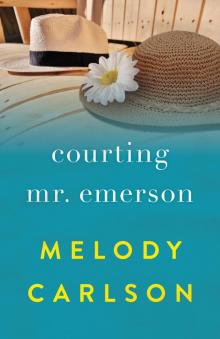 Courting Mr. Emerson
Courting Mr. Emerson The Christmas Swap
The Christmas Swap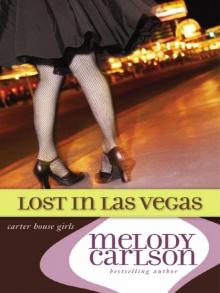 Lost in Las Vegas
Lost in Las Vegas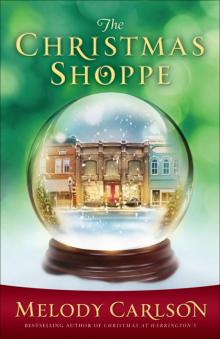 The Christmas Shoppe
The Christmas Shoppe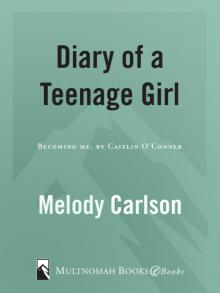 Becoming Me
Becoming Me Finding Alice
Finding Alice Payback
Payback All for One
All for One Under a Summer Sky--A Savannah Romance
Under a Summer Sky--A Savannah Romance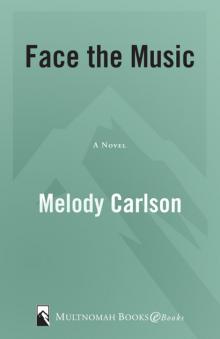 Face the Music
Face the Music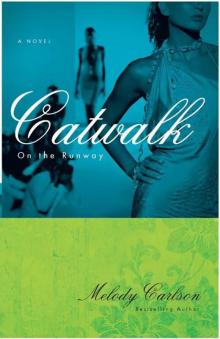 Catwalk
Catwalk Never Been Kissed
Never Been Kissed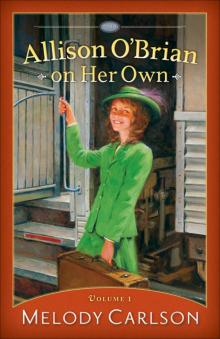 Allison O'Brian on Her Own
Allison O'Brian on Her Own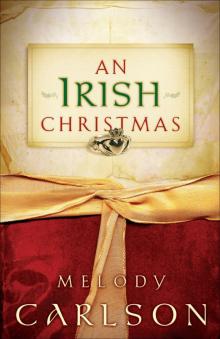 An Irish Christmas
An Irish Christmas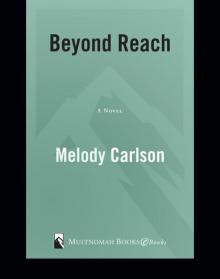 Beyond Reach
Beyond Reach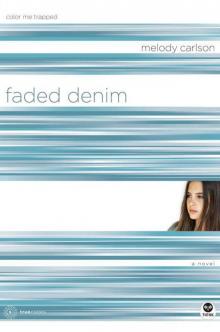 Faded Denim: Color Me Trapped
Faded Denim: Color Me Trapped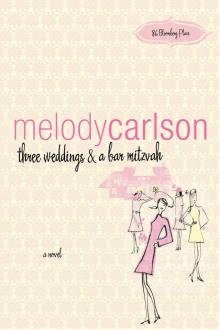 Three Weddings and a Bar Mitzvah
Three Weddings and a Bar Mitzvah Here's to Friends
Here's to Friends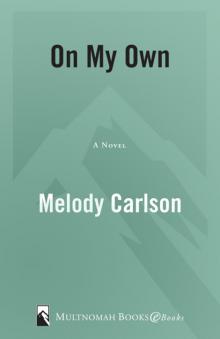 On My Own
On My Own River's Call
River's Call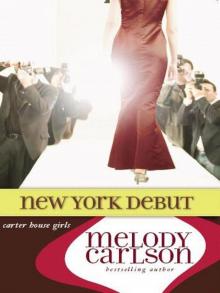 New York Debut
New York Debut Homeward
Homeward Love Finds You in Sisters, Oregon
Love Finds You in Sisters, Oregon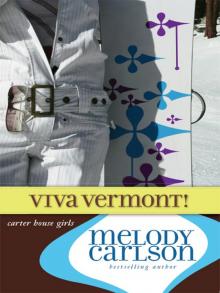 Viva Vermont!
Viva Vermont! Notes from a Spinning Planet—Ireland
Notes from a Spinning Planet—Ireland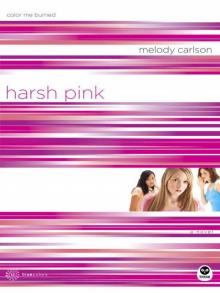 Harsh Pink with Bonus Content
Harsh Pink with Bonus Content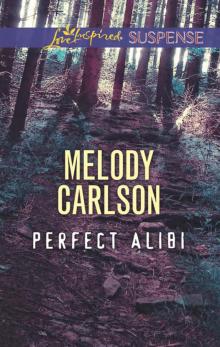 Perfect Alibi
Perfect Alibi The Christmas Pony
The Christmas Pony All Summer Long
All Summer Long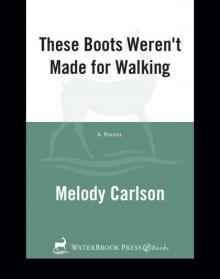 These Boots Weren't Made for Walking
These Boots Weren't Made for Walking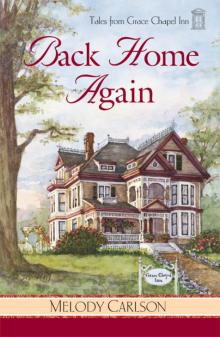 Back Home Again
Back Home Again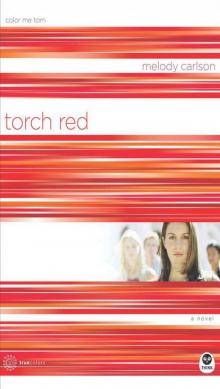 Torch Red: Color Me Torn with Bonus Content
Torch Red: Color Me Torn with Bonus Content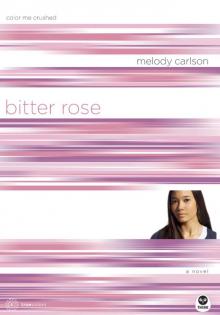 Bitter Rose
Bitter Rose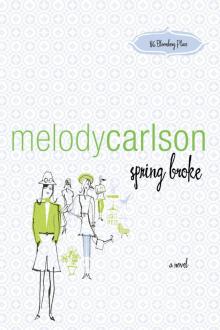 Spring Broke
Spring Broke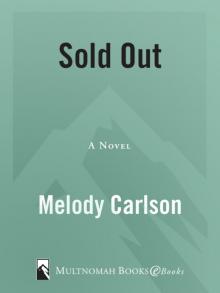 Sold Out
Sold Out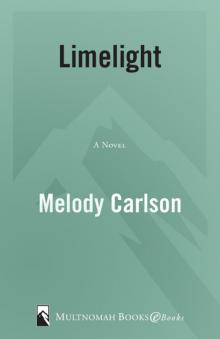 LimeLight
LimeLight Double Date
Double Date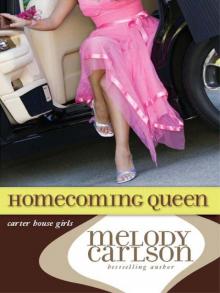 Homecoming Queen
Homecoming Queen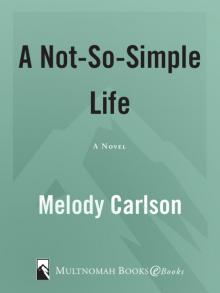 A Not-So-Simple Life
A Not-So-Simple Life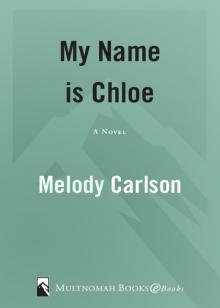 My Name Is Chloe
My Name Is Chloe My Amish Boyfriend
My Amish Boyfriend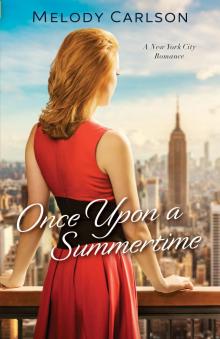 Once Upon a Summertime
Once Upon a Summertime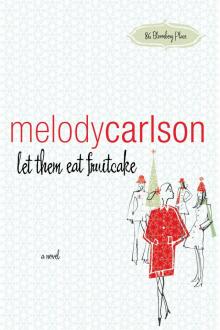 Let Them Eat Fruitcake
Let Them Eat Fruitcake Deep Green: Color Me Jealous with Bonus Content
Deep Green: Color Me Jealous with Bonus Content The Joy of Christmas
The Joy of Christmas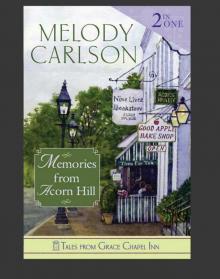 Memories from Acorn Hill
Memories from Acorn Hill Premiere
Premiere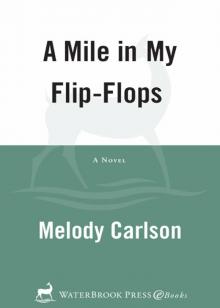 A Mile in My Flip-Flops
A Mile in My Flip-Flops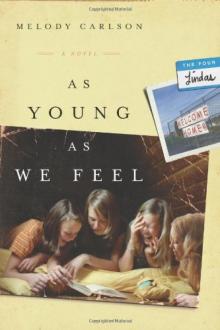 As Young As We Feel
As Young As We Feel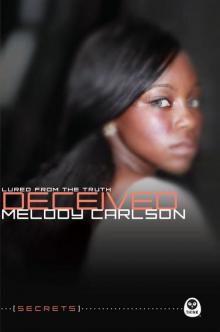 Deceived: Lured from the Truth (Secrets)
Deceived: Lured from the Truth (Secrets)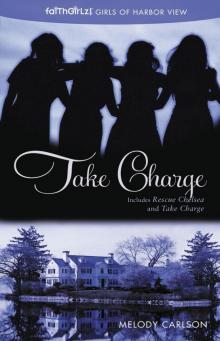 Take Charge
Take Charge Road Trip
Road Trip A Simple Song
A Simple Song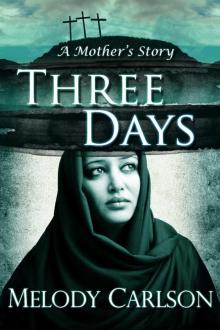 Three Days: A Mother's Story
Three Days: A Mother's Story A Dream for Tomorrow
A Dream for Tomorrow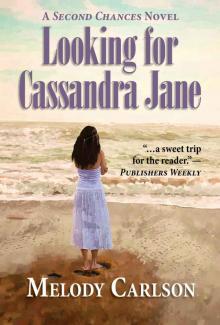 Looking for Cassandra Jane (The Second Chances Novels)
Looking for Cassandra Jane (The Second Chances Novels)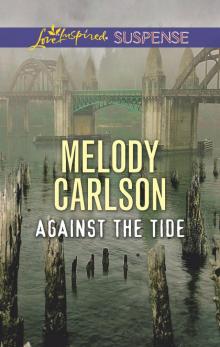 Against the Tide
Against the Tide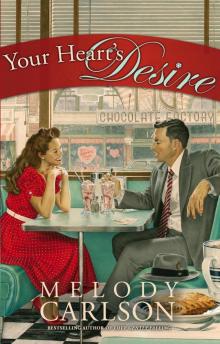 Your Heart's Desire
Your Heart's Desire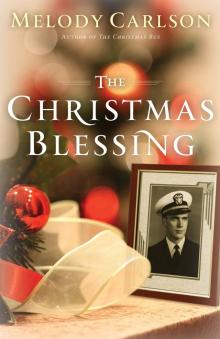 The Christmas Blessing
The Christmas Blessing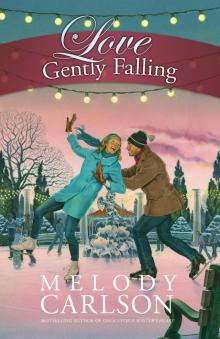 Love Gently Falling
Love Gently Falling On This Day
On This Day The Christmas Joy Ride
The Christmas Joy Ride Ciao
Ciao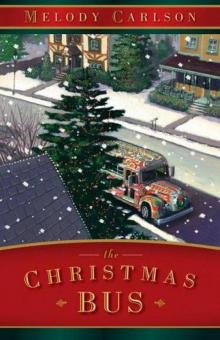 The Christmas Bus
The Christmas Bus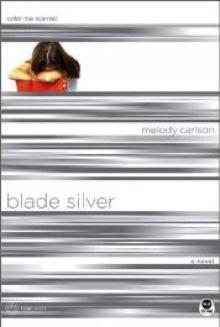 Blade Silver: Color Me Scarred
Blade Silver: Color Me Scarred Dating Games #1
Dating Games #1 Double Take
Double Take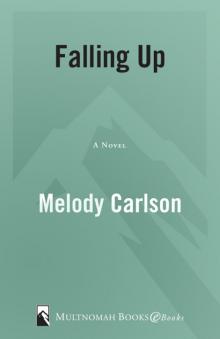 Falling Up
Falling Up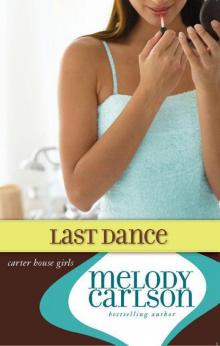 Last Dance
Last Dance Westward Hearts
Westward Hearts Glamour
Glamour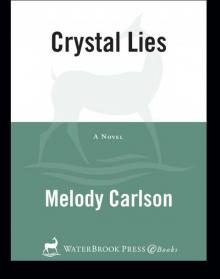 Crystal Lies
Crystal Lies The Best Friend
The Best Friend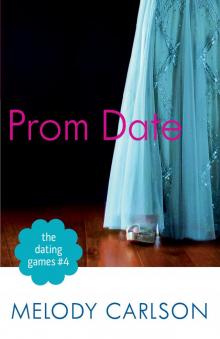 Prom Date
Prom Date The Christmas Angel Project
The Christmas Angel Project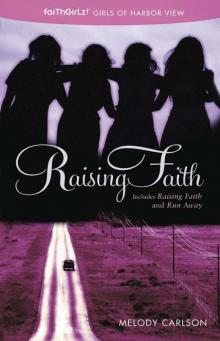 Raising Faith
Raising Faith The 'Naturals: Awakening (Episodes 1-4 -- Season 1) (The 'Naturals: Awakening Season One Boxset)
The 'Naturals: Awakening (Episodes 1-4 -- Season 1) (The 'Naturals: Awakening Season One Boxset)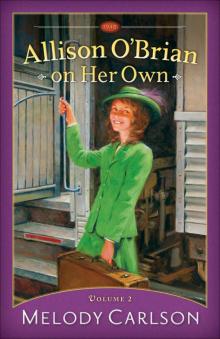 Allison O'Brian on Her Own, Volume 2
Allison O'Brian on Her Own, Volume 2 Notes from a Spinning Planet—Papua New Guinea
Notes from a Spinning Planet—Papua New Guinea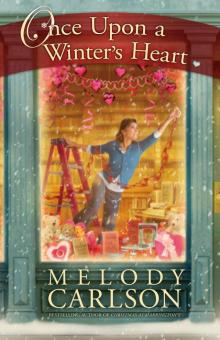 Once Upon a Winter's Heart
Once Upon a Winter's Heart Damaged
Damaged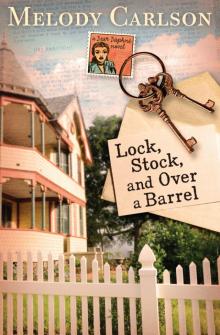 Lock, Stock, and Over a Barrel
Lock, Stock, and Over a Barrel Hometown Ties
Hometown Ties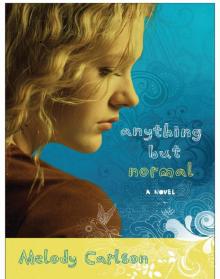 Anything but Normal
Anything but Normal Jerk Magnet, The (Life at Kingston High Book #1)
Jerk Magnet, The (Life at Kingston High Book #1) Damaged: A Violated Trust (Secrets)
Damaged: A Violated Trust (Secrets) Fool's Gold
Fool's Gold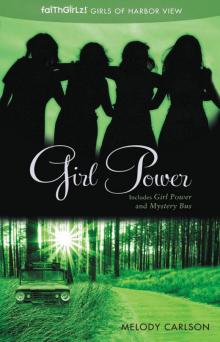 Girl Power
Girl Power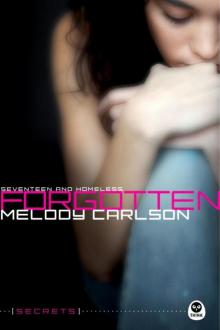 Forgotten: Seventeen and Homeless
Forgotten: Seventeen and Homeless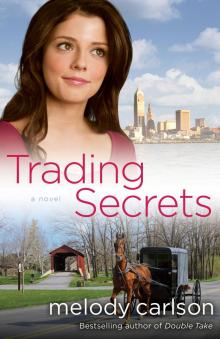 Trading Secrets
Trading Secrets Blood Sisters
Blood Sisters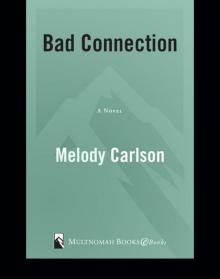 Bad Connection
Bad Connection Spotlight
Spotlight A Simple Christmas Wish
A Simple Christmas Wish Love Finds You in Martha's Vineyard
Love Finds You in Martha's Vineyard Angels in the Snow
Angels in the Snow A Christmas by the Sea
A Christmas by the Sea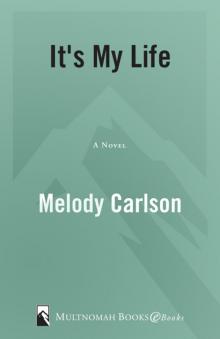 It's My Life
It's My Life Mixed Bags
Mixed Bags The Christmas Dog
The Christmas Dog Secret Admirer
Secret Admirer Love Finds You in Pendleton, Oregon
Love Finds You in Pendleton, Oregon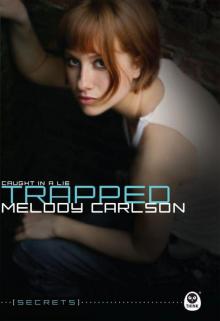 Trapped: Caught in a Lie (Secrets)
Trapped: Caught in a Lie (Secrets) The Gift of Christmas Present
The Gift of Christmas Present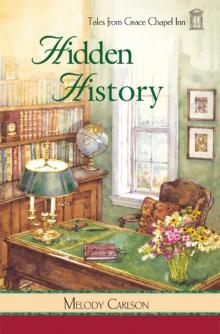 Hidden History
Hidden History Meant to Be
Meant to Be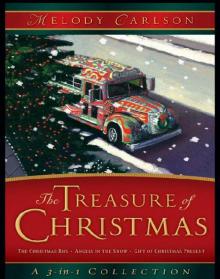 The Treasure of Christmas
The Treasure of Christmas Just Another Girl
Just Another Girl River's Song - The Inn at Shining Waters Series
River's Song - The Inn at Shining Waters Series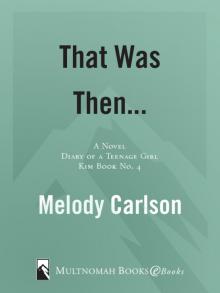 That Was Then...
That Was Then...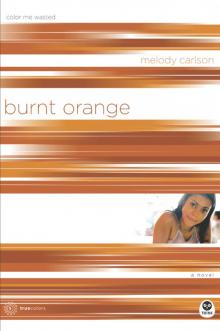 Burnt Orange
Burnt Orange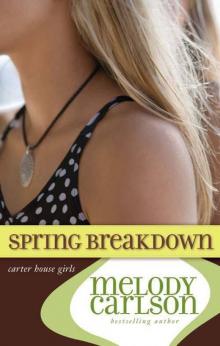 Spring Breakdown
Spring Breakdown The Christmas Cat
The Christmas Cat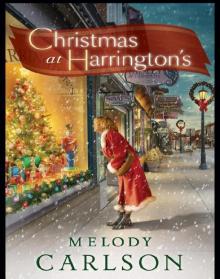 Christmas at Harrington's
Christmas at Harrington's